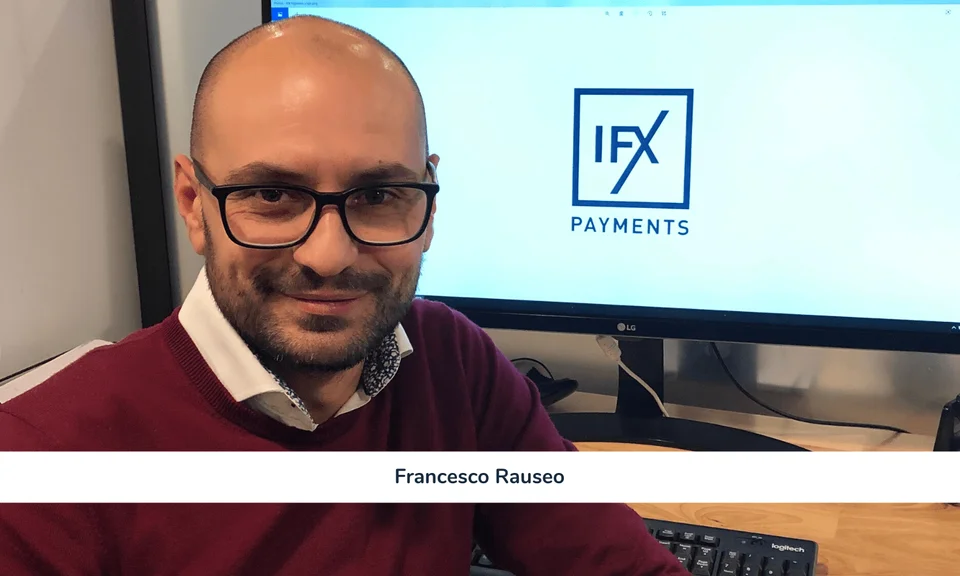- 03/01/2020

Headquartered in London, with offices around the world, IFX Payments is a significant participant in the new banking paradigm delivering advanced payment, treasury and financial management solutions. Compliance AML Team Leader, Francesco Rauseo tells us about the central role of fincrime analyst in the compliance department.
To kick this off, could you please give us a brief introduction about yourself and tell us where are you coming from?
I studied Business Administration and Management in Italy and working in this environment then in 2012 I decided to move to London where I started to develop my career in the hospitality sector.
At some point of my carrier I made my first step in compliance and I have been working in the compliance environment for almost 3 years, and now I joined IFX Payments, a leading global foreign exchange, payment, and financial technology provider with almost fifteen years’ experience.
What is and what does a FinCrime Analyst?
One side of my job is to detect financial crime to prevent it, the other one is to investigate help the law enforcement to catch those people. Some of the most common crimes facing the financial sector are money laundering, terrorist financing and fraud.
Basically I have to conduct reviews of new prospects and existing clients, reviewing transactions and clients activity to collect all the pieces of the puzzle 😊
What does your typical day look like?
This is not an easy question, however as I’m Italian, my day always starts with an espresso 😊
As a Financial Crime Analyst you need to be multitasking and proactive, prioritising the daily job and don’t miss any cut off time. Reviewing all the flags and payments on hold, identify high risk client/transactions, monitoring and taking action. I always have to analyse all factors associated with a customer to assess the specific risk.
What are the most important skills a FinCryme Analyst need?
The most important skill for FinCrime analysts are: can do attitude, attention to detail, prioritising tasks, have a passion for investigation and basically “get things done” in line with the best practice and regulation.
What types of certification or credentials are required for a FinCrime Analyst?
I strongly believe that the most important credential is the “can-do attitude". Your motivation and the desire to grow your knowledge and do your best to tackle crime is the best certificate.
Don't get me wrong I have an ICA certificate myself but without passion and love for this job any certificate or degree are useless.
Why fintech and banks need a FinCrime Analyst?
FinCrime Analyst is part of compliance framework which is a crucial function for fintech and banks to make sure all the business is in line with regulation and the best practice to prevent crime.
Due to the technology in use today a lot of criminals are stepping up on the way to conduct fincrime so we have to step up as well to make sure they have no access to the financial sector.
You previously worked at Revolut, how important is fincrime function for a challenger bank?
All financial institutions need a fincrime framework. Those new challenger banks like Revolut and IFX have stepped up compared to the bank environment simply because we use more technology, we are much more flexible to implement solution to tackle crime.
We try to prevent instead to be sorry after. We all follow the same regulation the main difference is that we don't have useless bureaucracy and hierarchy. You need a flexible structure if you want to be proactive.
How important will be regtech and robotic process automation solutions in your job in the near future?
In the near future the compliance function will be completely run by artificial intelligence and regtech. Those machines will help the industry to understand the behaviour of the clients and proactively take the right step to prevent financial crime. we don't need to be scared of the change!
Those changes will help people like me to better investigate and understand when a suspicious activity will come up and most important this technology will make all the process much quicker.
I can't wait to see what is the next step!



![What [the heck] is InsurTech? image](https://media.fintastico.com/images/network-782707_1280.2e16d0ba.fill-72x72.png)